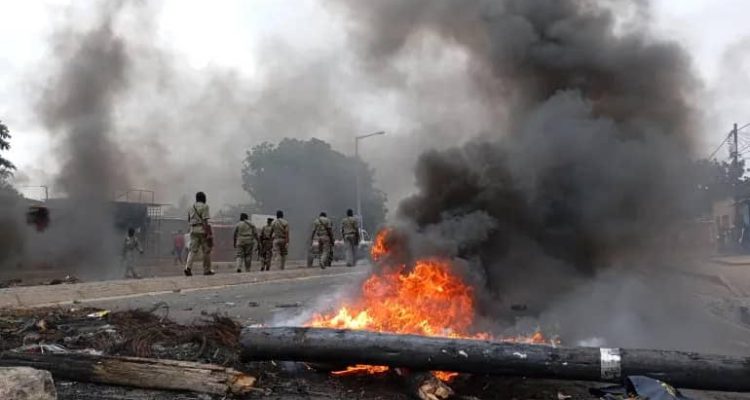
At least 21 people, including two police officers, have been killed in Mozambique following widespread unrest triggered by the confirmation of the governing Frelimo party’s victory in the disputed October 9 elections. Interior Minister Pascoal Ronda confirmed the grim statistics during a press conference on Tuesday.
The unrest, which erupted after the Constitutional Council upheld Frelimo’s victory through Daniel Chapo, has led to 236 reported acts of serious violence since Monday, according to Ronda. The clashes have left 25 individuals injured, including 13 police officers.
Protesters and opposition groups have rejected the election results, alleging widespread fraud and manipulation. These allegations have cast a shadow over the electoral process, further deepening the political crisis in the southern African nation.
The Mozambican government has responded with increased security measures. Ronda announced that 78 individuals have been arrested in connection with the unrest. “The armed forces will increase their presence in critical and key points,” he stated, emphasizing the need to restore order.
Frelimo, which has ruled Mozambique since its independence in 1975, has been repeatedly accused of rigging elections to maintain its grip on power. The party has consistently denied these allegations.
Opposition parties and their supporters argue that the elections were marred by voter suppression, ballot manipulation, and intimidation. These accusations have fueled mass protests, with demonstrators demanding accountability and justice.
The Constitutional Council’s decision to uphold the results, despite these concerns, has been met with widespread criticism. Protesters believe the ruling party is exploiting state institutions to silence dissent and legitimize its continued rule.
Mozambique’s current turmoil highlights a growing trend in Southern Africa, where liberation movements-turned-governing parties are facing accusations of undemocratic practices. The dissatisfaction with Frelimo reflects a broader struggle for democratic governance in the region.
The ongoing protests pose a serious challenge to Mozambique’s stability. If the government continues to rely on heavy-handed measures, it risks further alienating the population and escalating the crisis.
For lasting peace, dialogue between the ruling party, opposition, and civil society is critical. Addressing allegations of election rigging and ensuring accountability are essential steps to rebuild trust in Mozambique’s political system.
As Mozambique grapples with this crisis, the international community must pay close attention to ensure that justice and democracy prevail in this troubled nation.














